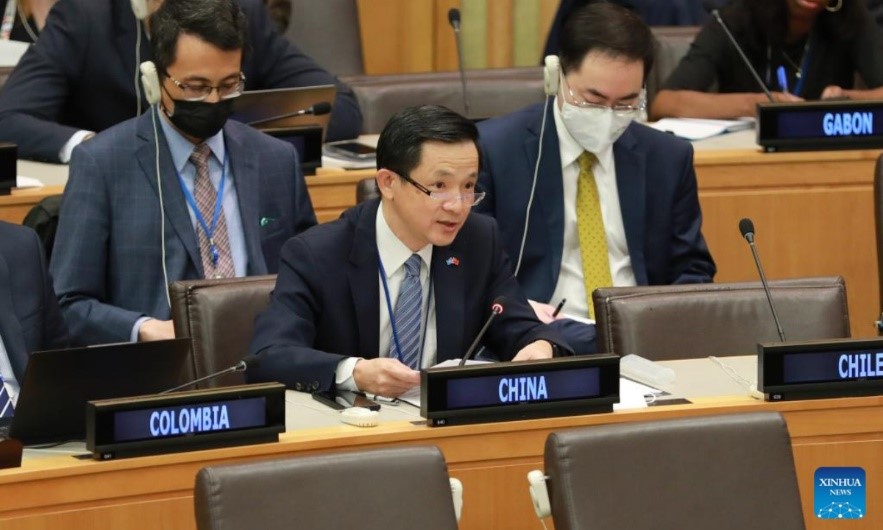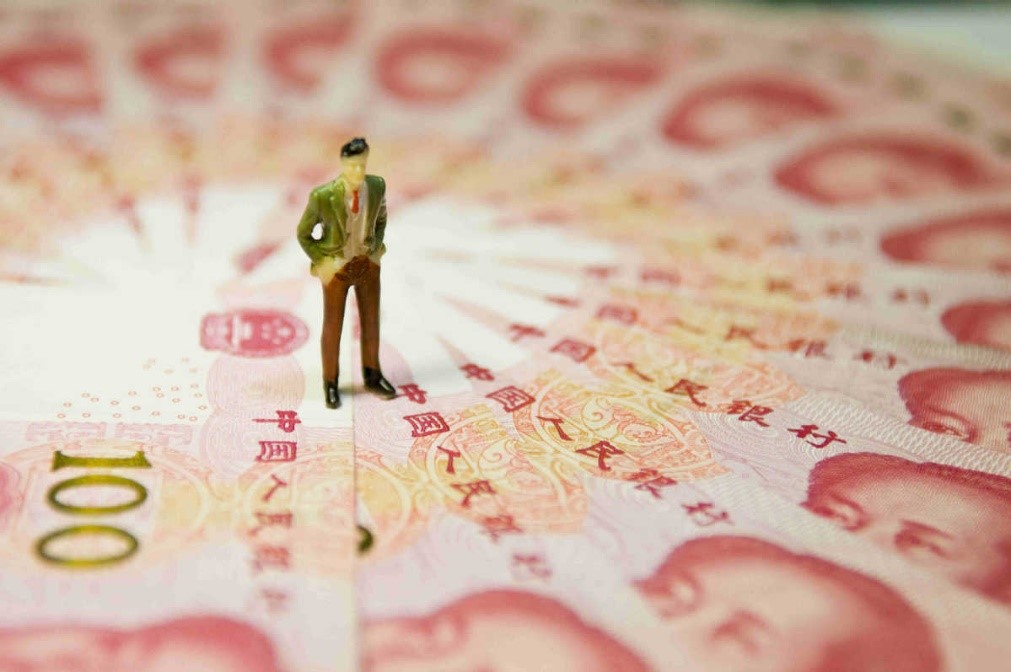1
Food delivery order from campsites surge 500% during National Day holidays
Fresh food delivery order from camping sites saw a weekly increase of 500 percent during the seven-day National Day holidays, or the Golden Week, as camping emerging as a popular holiday choice nationwide. As of Monday, the third day of the Golden Week, fresh food orders from campsites were up 500 percent from the previous week, according to statistics from Dingdong Maicai, an online grocery and fresh vegetables e-commerce platform. The most ordered groceries included seasonal fruit, yoghurt, coffee, marinated cooked food and barbecue side dishes. Among them, the largest number of orders came from parks, motorhome campsites and other types of campsites, according to Dingdong Maicai. The online platform forecasts that the overall sales of prepared dishes during the seven-day National Day holidays will increase by 50-60 percent compared with last year. Meanwhile, picnic and camping supplies, such as paper towels, crisper containers, barbecue skewers, barbecue holders, disposable bowls and chopsticks, and aluminum foil also increased by more than 300 percent year-on-year. A camping boom has made it difficult to find a place to pitch a tent for those who failed to book a site in advance, though industry data revealed that campsites have been springing up across first-tier and other major cities this year. In Beijing alone, there were at least 500 large- and medium-sized registered campsites before the National Day holidays. A Beijing-based camping enthusiast surnamed Xu was among those who failed to book a place at campsite. "I know camping is a new trend but I didn't expect that it is this hot! The only choices left last week were very expensive. My friends and I don't want to pay 2,300 yuan ($323) per night per person for a camping place. The same as with finding a homestay in Beijing's outer suburbs," Xu told the Global Times on Tuesday. All the camping places were booked two weeks before the Golden Week, an operator of a camping site in Beijing's outskirts district Miyun told the Global Times on Tuesday. "In order to ensure customer experience, we have capped guest numbers," the operator said. Shanghai campsite operators also said that sites had been fully booked, according to media reports. Media Source: Global Times
2 China urges UN member states to fulfill financial obligations on time, in full A Chinese envoy on Monday urged all UN member states, especially major contributors, to fulfill their financial obligations on time and in full. "Member states should translate their promises into actions, to ensure the UN's work and mandate implementation," Dai Bing, China's deputy permanent representative to the United Nations, told the opening of the main session of the Fifth Committee of the 77th UN General Assembly, which deals with internal UN administrative and budgetary matters. The financial situation of the United Nations remains worrying, as "one major contributor still has long-time arrears, which is the main cause of the UN's liquidity crisis," despite repeated calls by most member states and the secretary-general's letters to member states expressing his concerns, said Dai. "China, as always, actively fulfills its financial obligations, and has fully paid the assessments to the regular budget this year," he said. China calls on all parties to have broad consultations and strive for win-win cooperation, and believes that program planning should adhere to the member states-driven principle and take into account the legitimate interests and aspirations of member states, he said. Regarding the trial period of annual budget, the budget modality should be scientific and reasonable, he said. "It should effectively improve the accuracy and stability of budget preparation, and promote the implementation and performance of the budget and programs." "The Chinese delegation will always constructively participate in the discussion and consultation of various items, and support the chair's work. We will work with all parties to ensure the completion of the agenda and the delivery of expected outcomes," said the envoy. Media Source: Global Times
3 China software sector sees revenue growth in January-August China's software industry reported a 9.8-percent year-on-year increase in business revenue in the first eight months of the year, according to official data. Revenue of this sector totaled 6.44 trillion yuan (about $907.07 billion) from January to August, data from the Ministry of Industry and Information Technology shows. Companies in the sector raked in 695.2 billion yuan in combined profits during the period, up 3.6 percent year on year. During the period, exports of China's software services amounted to 34.4 billion U.S. dollars, up 4.8 percent year on year. Media Source: China Daily
4 Export hub steps up to meet World Cup demand With the 2022 FIFA World Cup approaching, Chinese companies are rushing to fill their shipping containers with goods ranging from soccer balls and toys to virtual reality helmets for the event, which will be held in Qatar in November and December. The tournament, held every four years, has boosted the growth of the global sports economy by creating business opportunities for export-oriented companies. Orders for products related to the grand event, which is scheduled to be held from Nov 20 to Dec 18, flowed into Yiwu, Zhejiang province, the world's largest small-commodity distribution center, since April, according to local exporters. The Yiwu Sporting Goods Association estimated that the city accounts for about 70 percent of the World Cup's peripheral goods market this year, providing items from whistles to themed mugs and pillows. "We are in the final stage of exporting World Cup-related soccer balls. All the goods will be shipped to Qatar by the end of this month," said Wu Xiaoming, board chairman of Yiwu Aokai Sports Goods Co, an authorized soccer manufacturer for the World Cup that has a production capacity of 800 soccer balls a day. He said the third quarter is usually a quiet period in the city for exports of small commodities, but the World Cup turned it into a busy season this year. The company saw its soccer ball exports jump 70 percent year-on-year between July and September. Chen Xianchun, a sales manager at Yiwu Jinzun Stationery Co, which produces sports trophies, medals and keychains, said her company's overseas orders, mainly placed by clients in the Netherlands, Germany and the Republic of Korea, surged nearly 50 percent year-on-year in the third quarter. "Even though the COVID-19 pandemic affected retail and factory businesses in Yiwu in early August for a short time, this has pushed exporters in the Yiwu International Trade Market to expand their proportion of online sales," said Chen, who added that her company has completed all the orders related to the World Cup. "Many customers have contacted us online. Product materials and styles can be shown to them through livestreaming," she said. "Our workload has increased, and sales went up and overseas demand remains strong." Thanks to the growing demand prompted by the World Cup, companies in Yiwu exported 3.82 billion yuan ($537 million) worth of sporting goods and 9.66 billion yuan of toys in the first eight months of 2022, according to data from Yiwu Customs, a branch of Hangzhou Customs. Meanwhile, the city's exports to Spain increased by 95.8 percent year-on-year, to Argentina by 67.2 percent and to Brazil by 56.7 percent, according to customs statistics. All three nations are among those sending teams to Qatar. Eager to ship scarves, trumpets, stickers and other sports products to Qatar as quickly as possible, the city opened the Qatar World Cup shipping line in mid-September. Its products, departing from the Ningbo-Zhoushan and Shanghai ports, can be shipped directly to Hamad Port in Qatar within 20 to 25 days. In addition to exports of low-value-added products, global demand for made-in-China virtual reality helmets, high-definition TVs, projectors and home theaters, as well as other high-end customized products, led by World Cup demand, have notably surged, said Zhang Yongjun, a researcher at the Beijing-based China Center for International Economic Exchanges. For instance, China's exports of liquid crystal display televisions grew by 16.8 percent year-on-year to 61.13 million units in the first eight months of 2022, data from the General Administration of Customs showed. Media Source: China Daily
5 China's bond market further deepens opening-up As of the end of August, overseas institutions held 3.55 trillion yuan ($507.14 billion), or 2.5 percent, of the outstanding bonds in custody in China's bond market, according to the central bank. Specifically, their holdings in the interbank bond market amounted to 3.48 trillion yuan. In terms of bond type, overseas institutions held 2.3 trillion yuan, or 66.9 percent, of treasury bonds, and 800 billion yuan, or 23.4 percent, of policy financial bonds. China announced in May that it would further facilitate foreign institutional investments in its bond market and coordinate the opening-up of the interbank and exchange bond markets. The country aims to increase the diversity of investors, while improving the liquidity and stability of its bond market, according to an announcement jointly issued by the central bank and top securities and foreign exchange regulators. The declaration came into effect on June 30, 2022. Media Source: China Daily